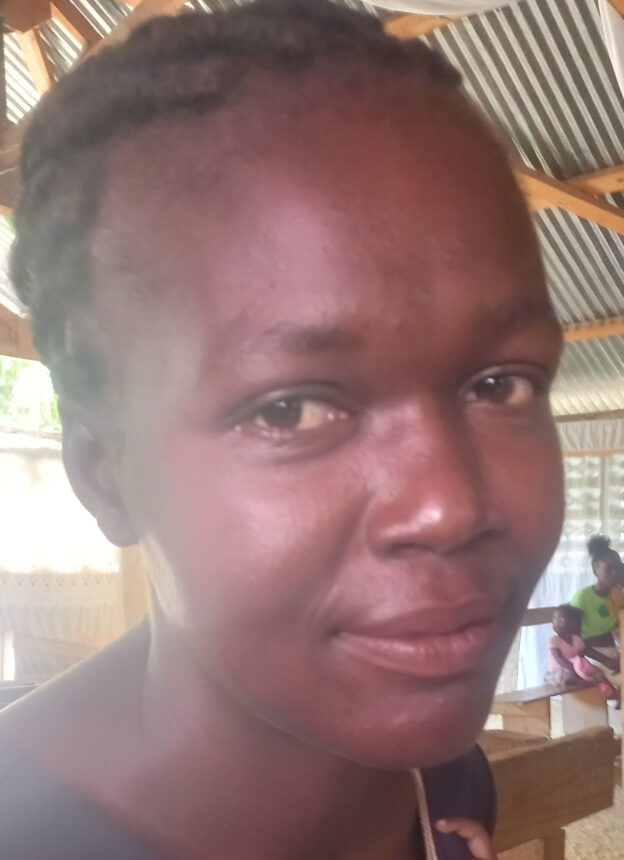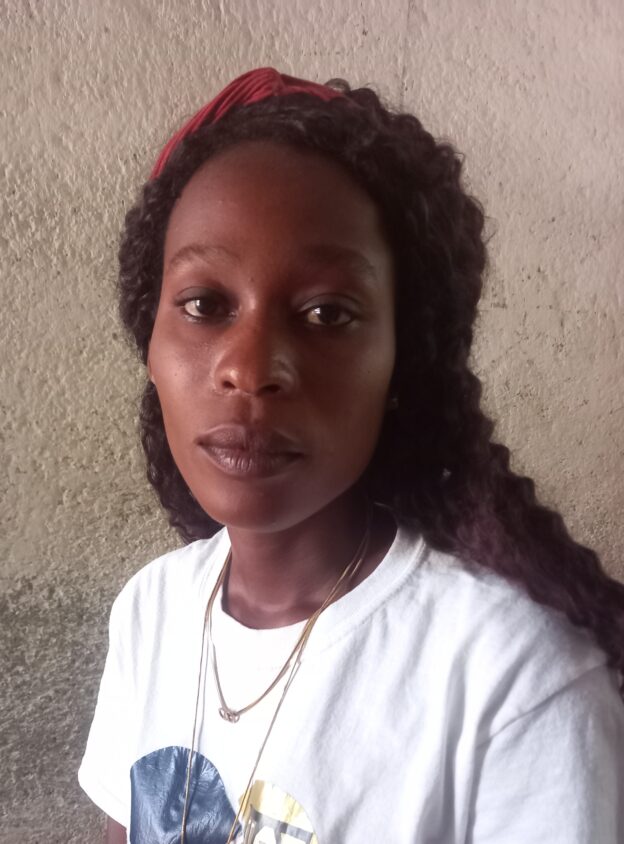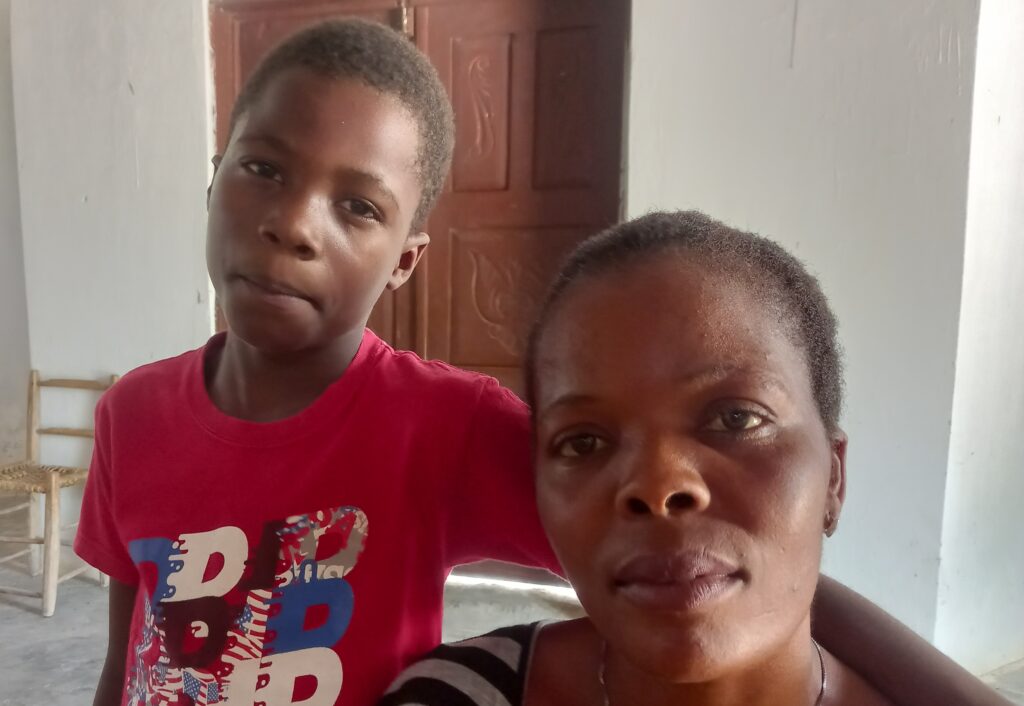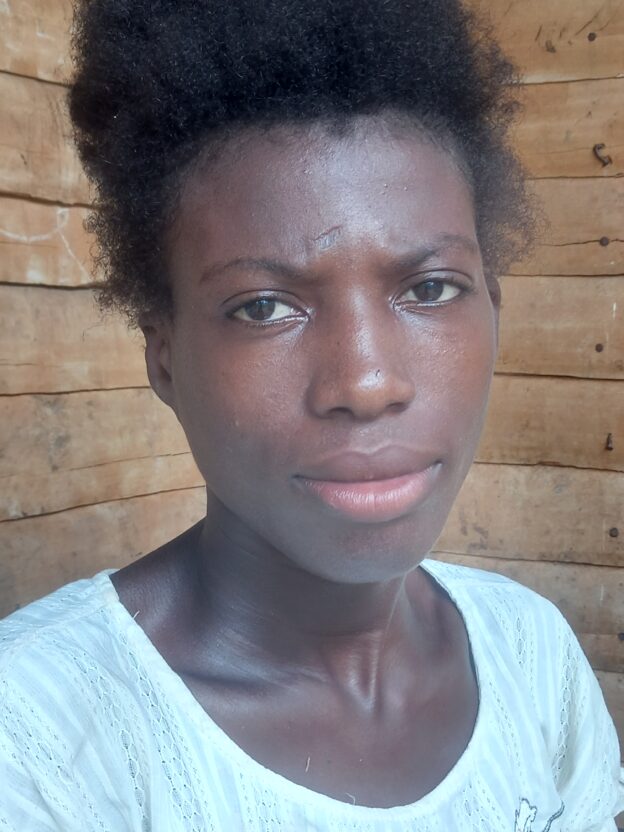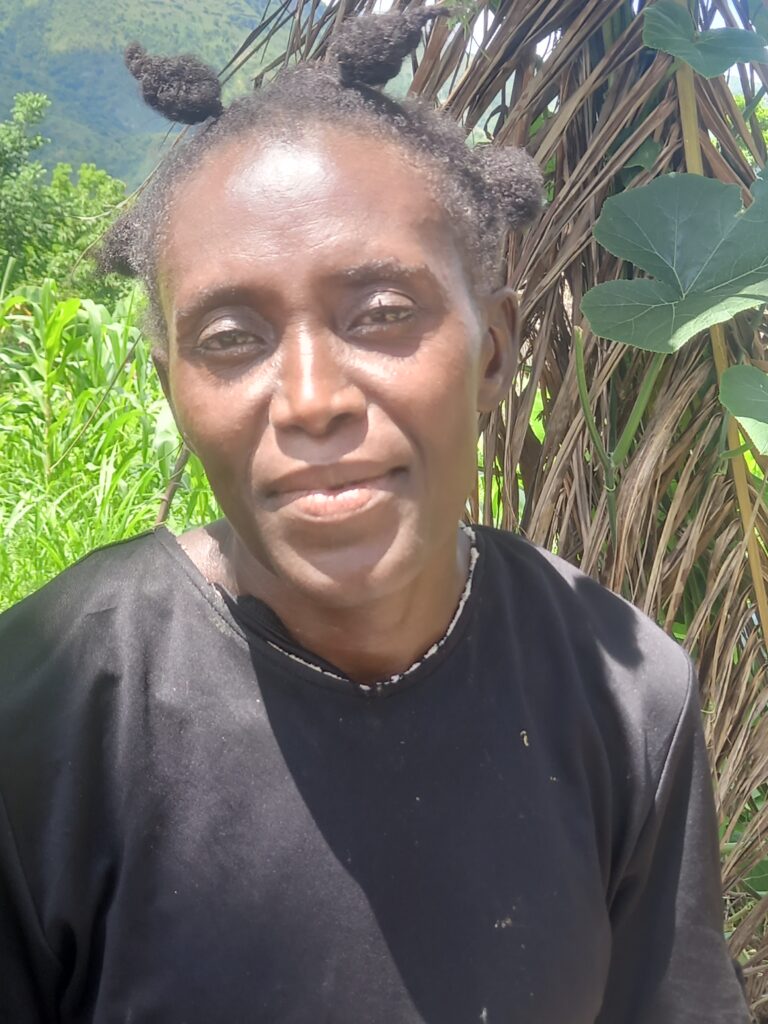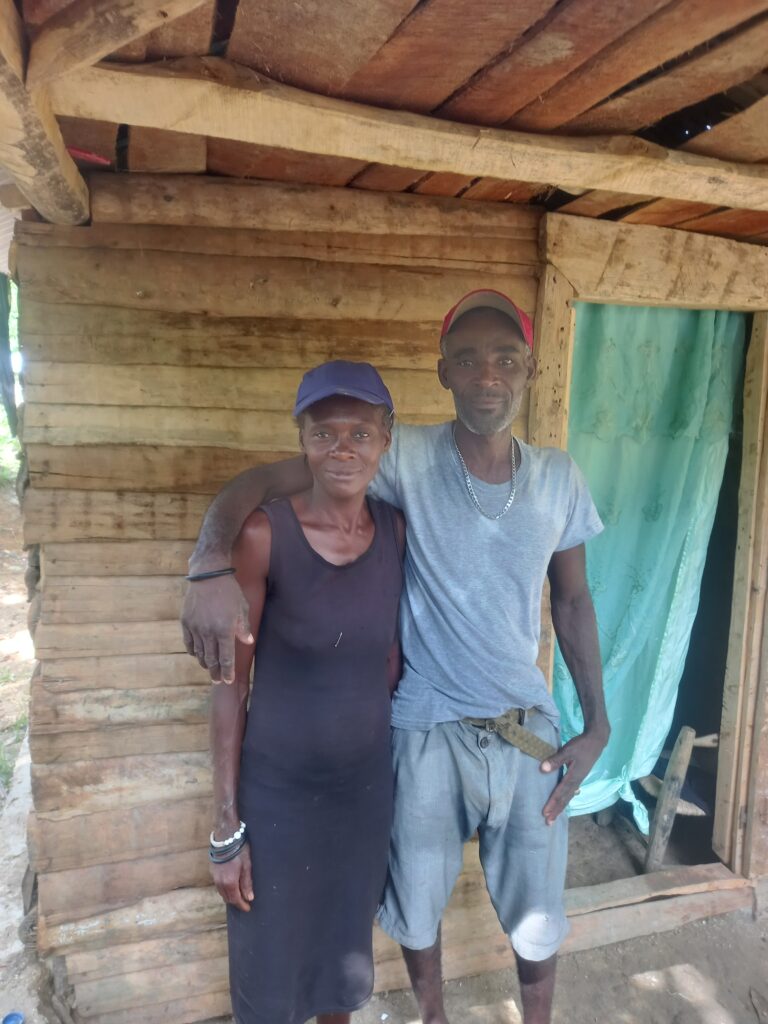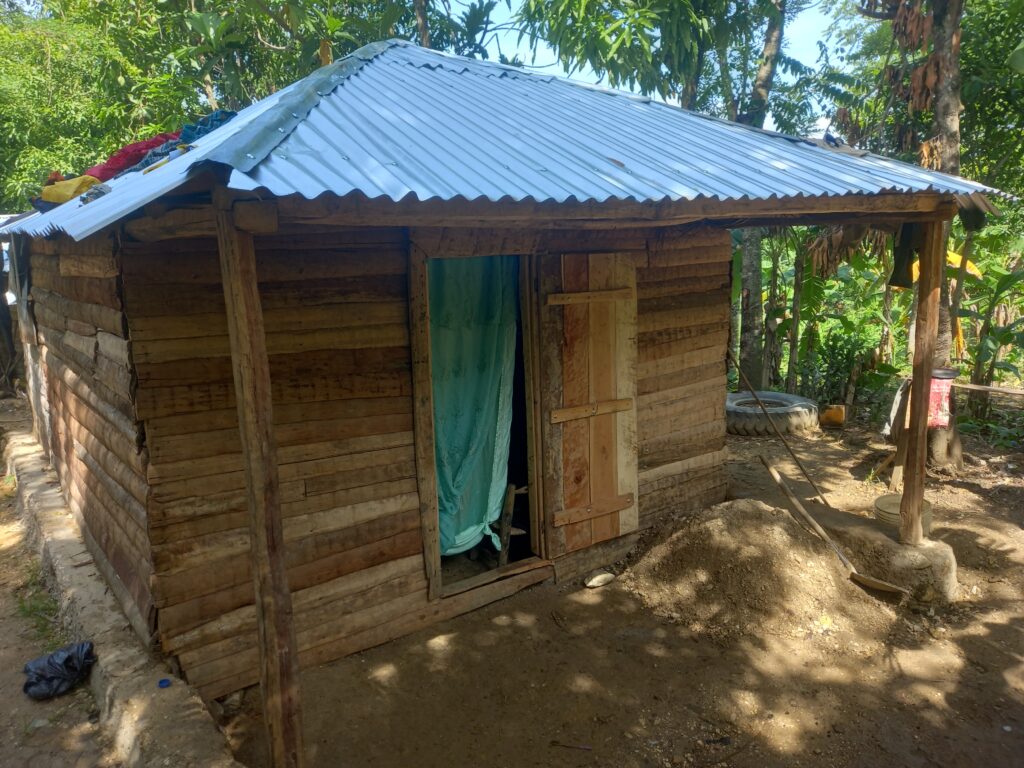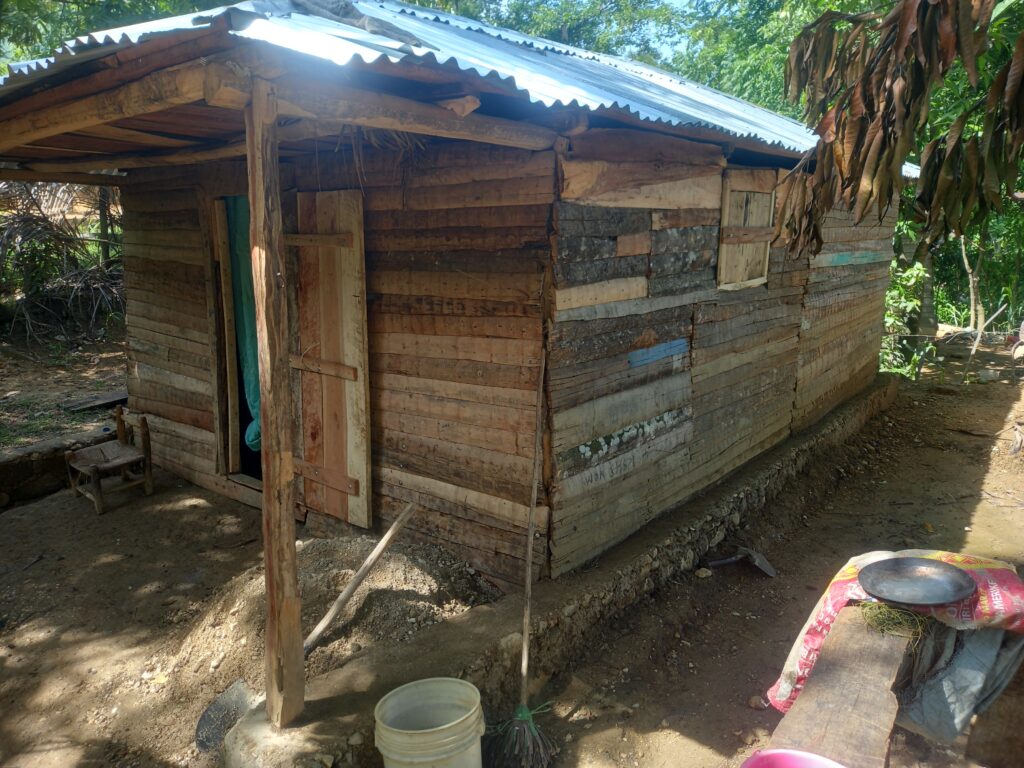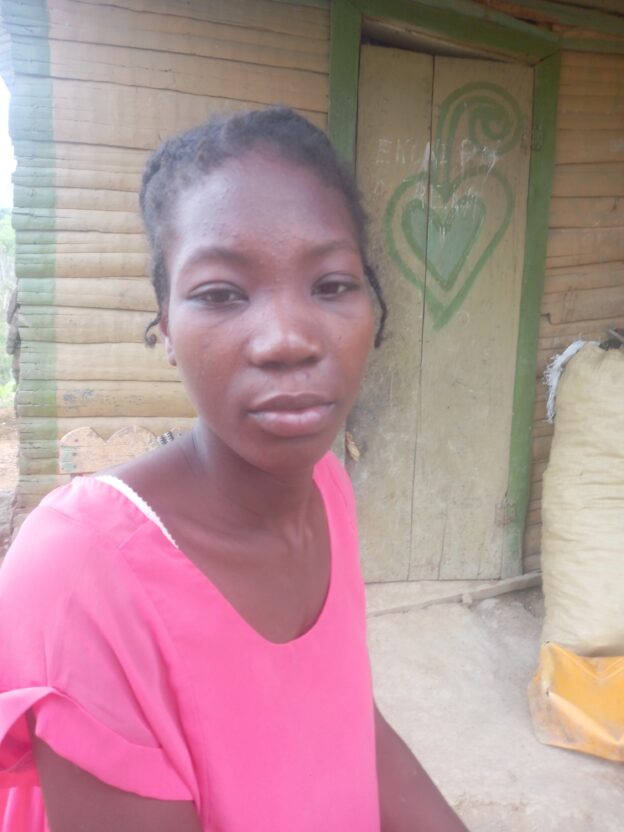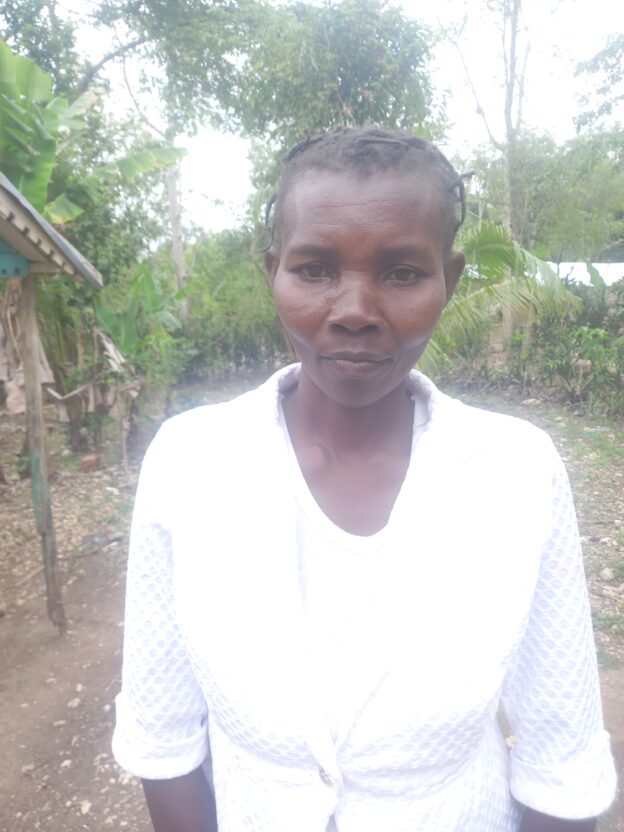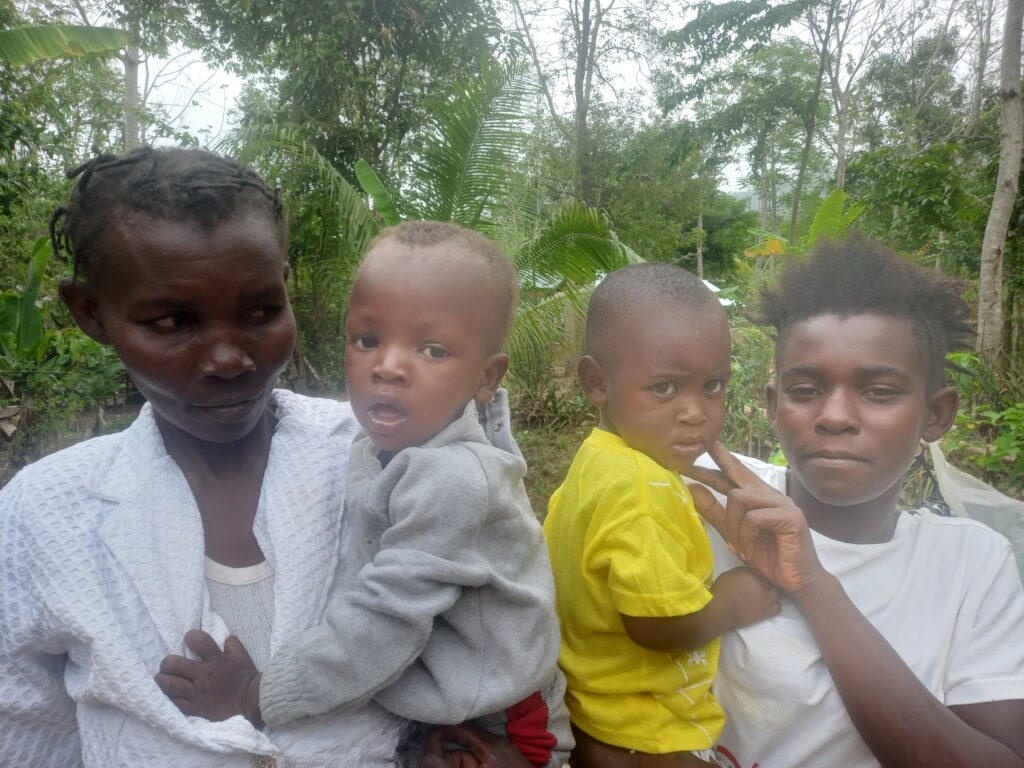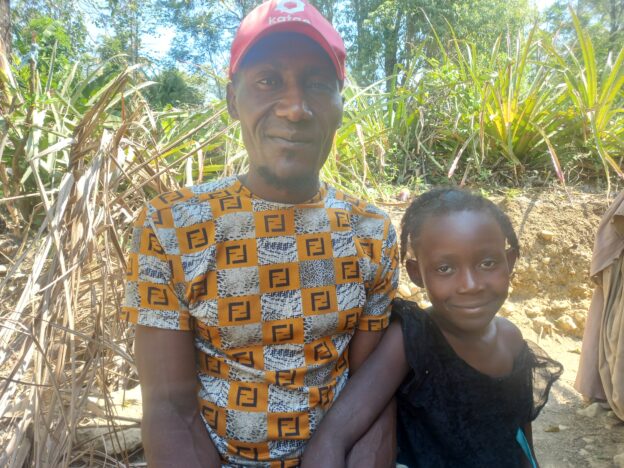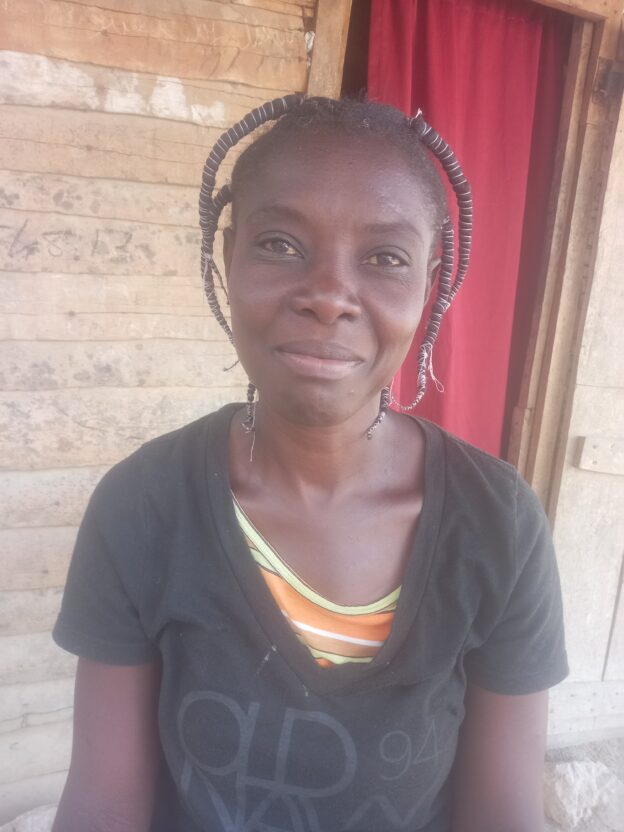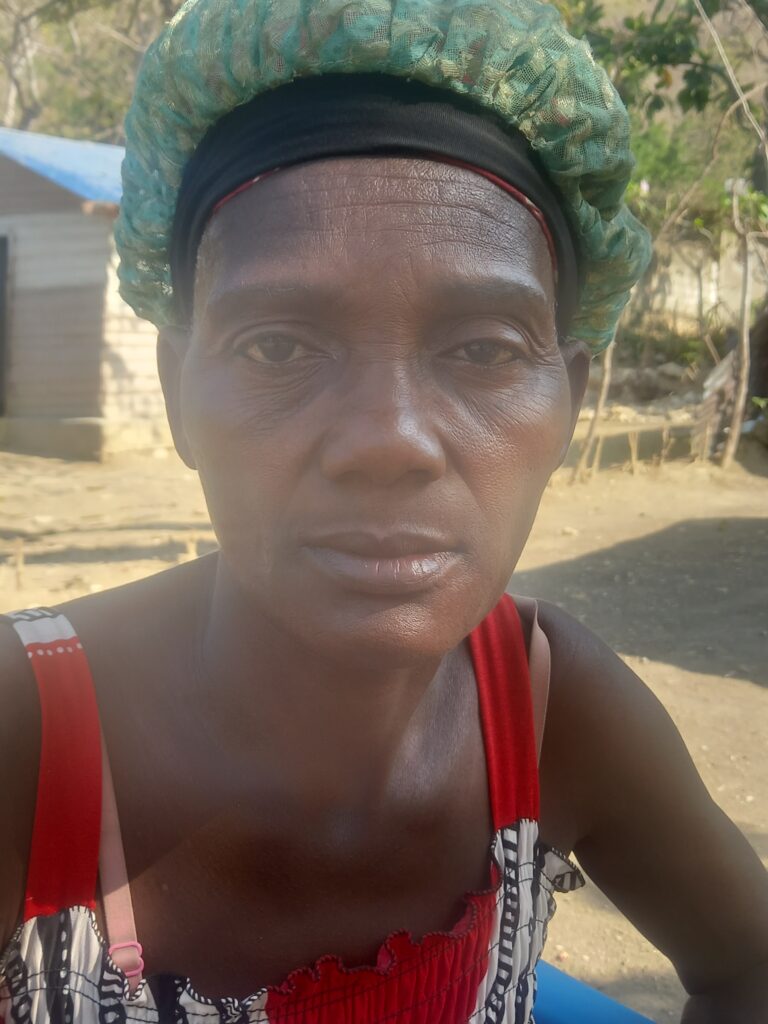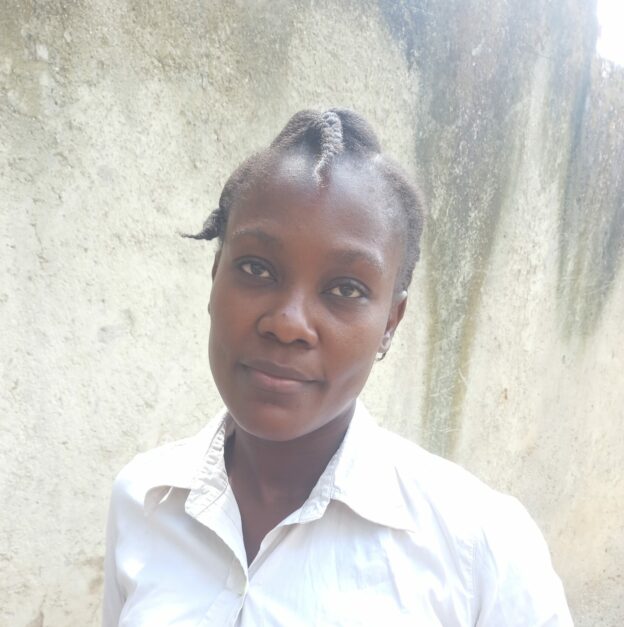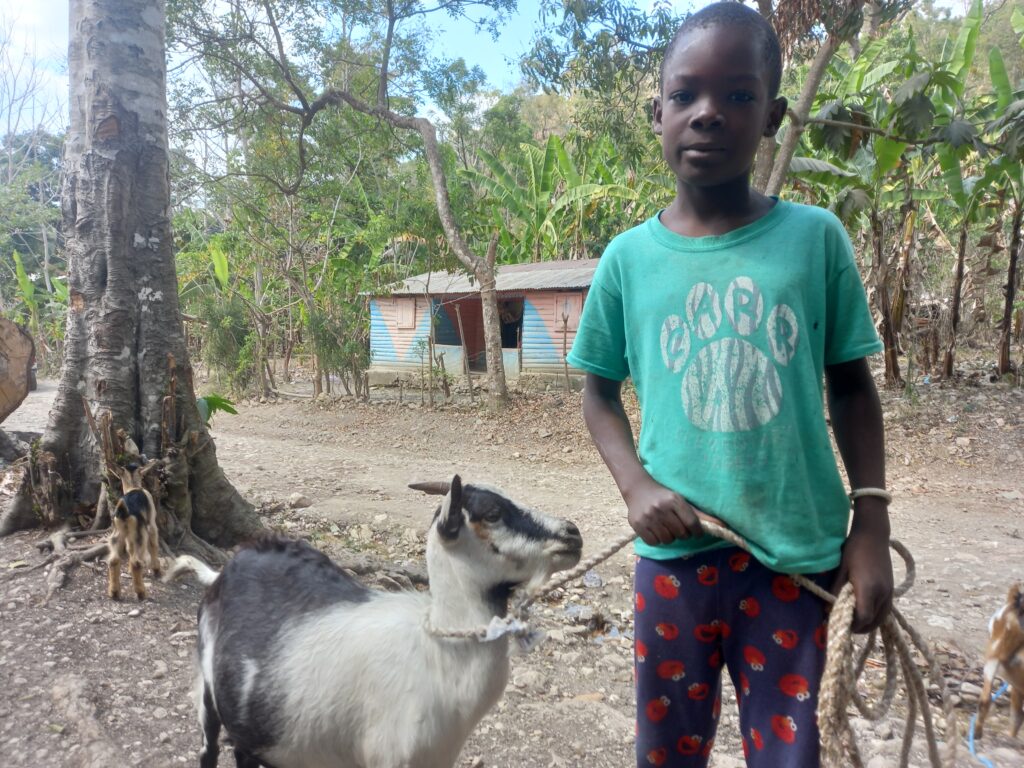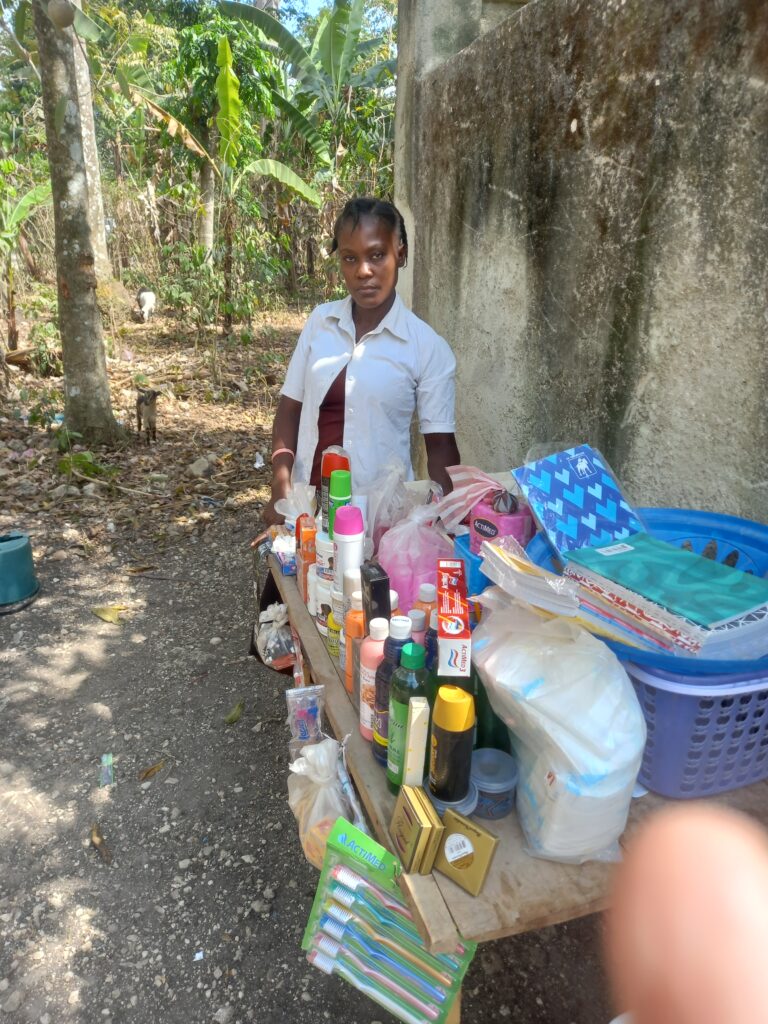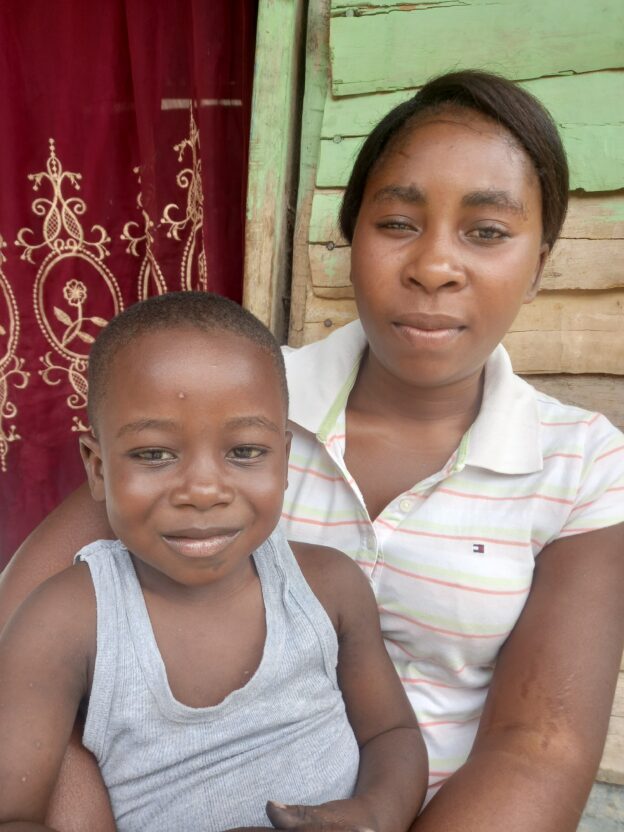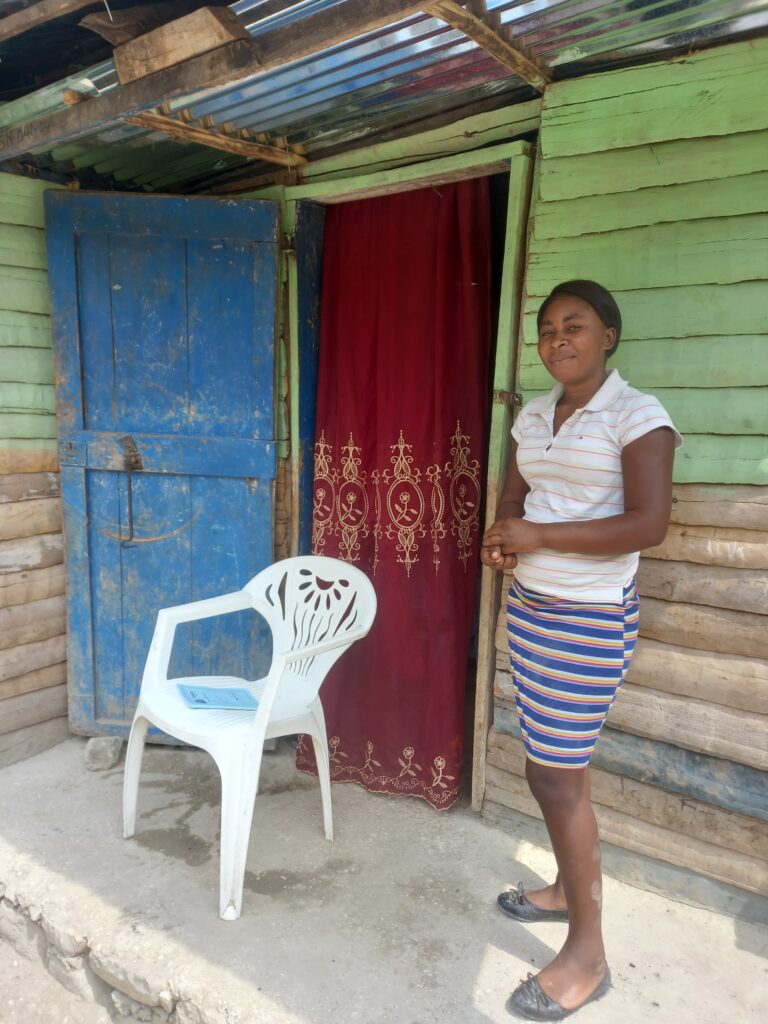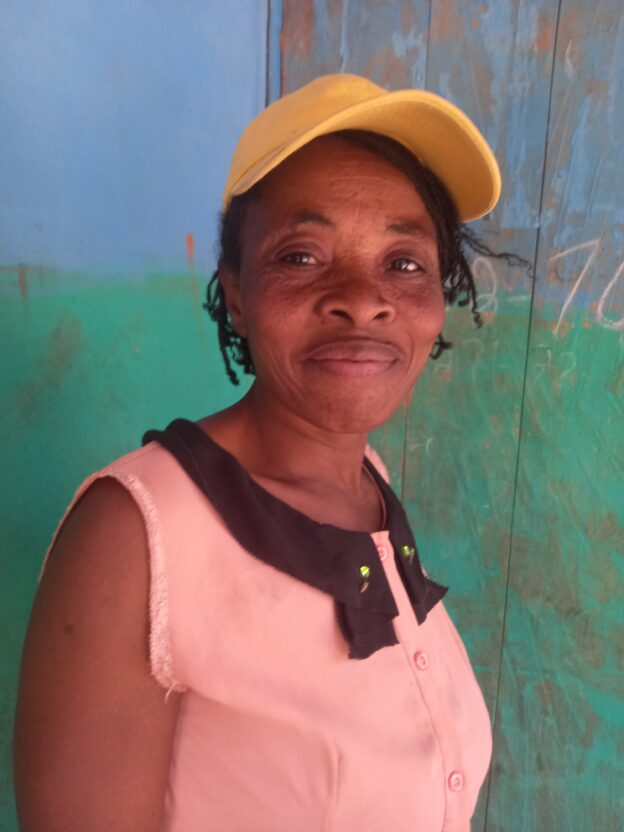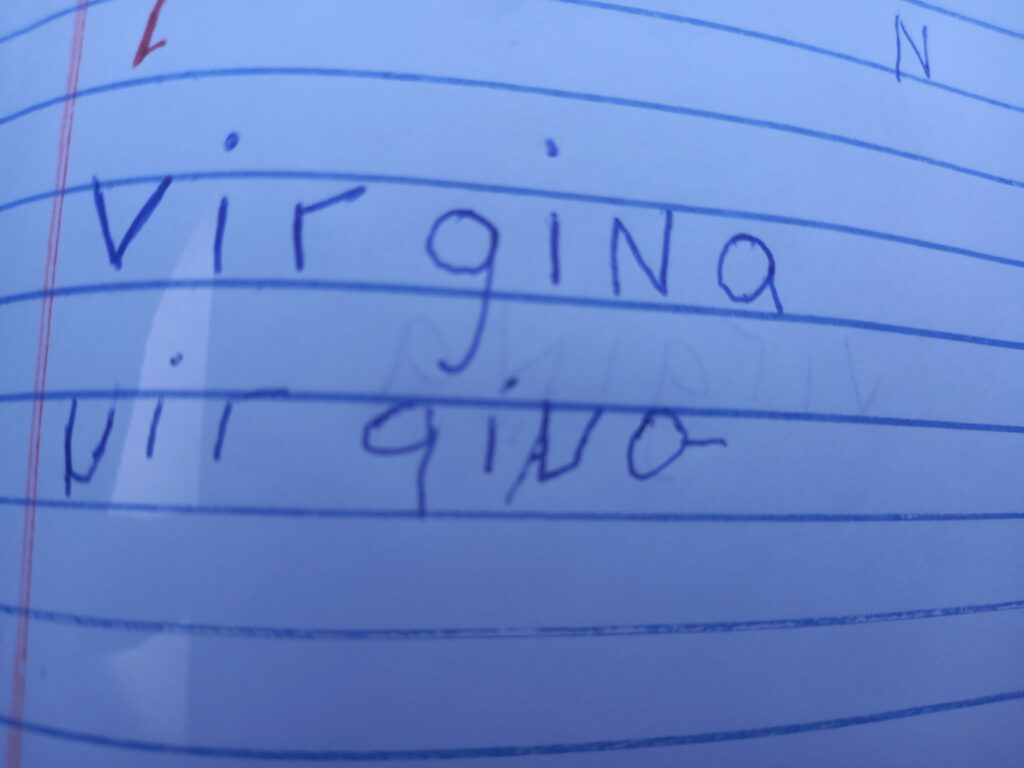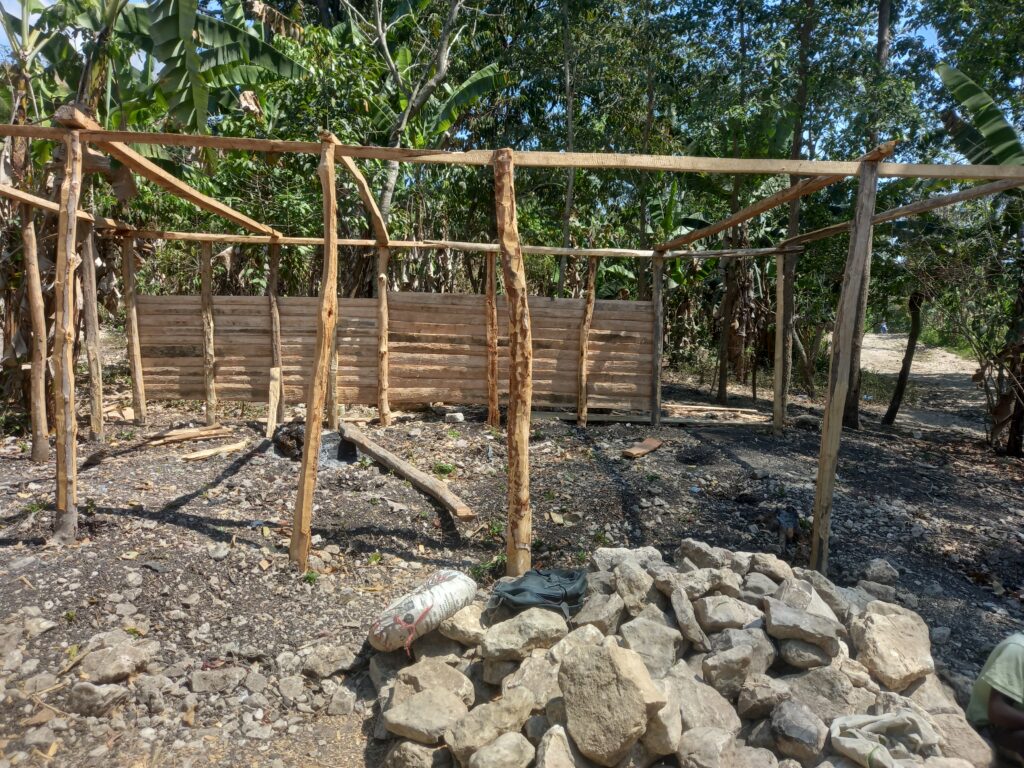Lonise joined the CLM program in August 2022. She and her partner, Wilfrid, were sharing a rented room in Gwayav, one of the many small, rural neighborhoods of eastern Laskawobas. Her four children lived with them as well. The two younger ones are Wilfrid’s kids, but the two older ones are from a prior relationship. Louise feels lucky. Her older children’s father helps with their expenses, and Wilfrid treats those kids well too.
Before CLM, Wilfrid couldn’t be around very much. Lonise had never been able to earn money herself, and while she was nursing their baby, it would have been even more difficult to do so. Wilfrid supported the couple with frequent trips to the Dominican Republic. The border is nearby. He would work as a farm laborer, and then bring his earnings home.
When they joined the program, things began to change. The small weekly stipend that Lonise received gave them some cash to work with. She would use some to invest every week in the savings and loan association that the program established for her and the other CLM members in her area. Some of it could help with household expenses.
She asked the CLM team to give her goats, and they gave her two, and one had its first kid. “I never had goats before, and now I have three.” She hopes that, if she takes good care of the goats, they will continue to multiply, and she will always have animals she can sell when she needs to send her children to school.
Sending them to school this year was not a problem. When the CLM team established the savings and loan association, they planned for its cycle to end just before the beginning of school. These associations pay out everything that members have saved and all the interest that’s been earned on loans at the end of each cycle, so Lonise collected more than 10,000 gourds. It was enough to buy her children the things they needed to start the year.
She and Wilfrid have made good use of the program’s support for home construction. Their new home is nearly ready. It lacks only doors. They’ll soon be able to move from the rented room, and then they will be finished with paying rent. They have also installed a latrine, something they have never had before.
She and Wilfrid both wanted him to stop spending most of his time in the DR. He was willing to help her with her livestock and to earn what he could farming locally. But Lonise felt she needed a way to bring money into the household, too. She felt limited, however, because she was still nursing their child.
She wanted to establish a small commerce, but she had to stay around the home because she had no-one to look after her younger kids. So she thought about the kinds of things rural Haitian business people generally sell out of their homes, and she settled on two products to start with: sugar and ground, roasted coffee. She prepares the coffee herself, and sells it to neighbors who want to make their morning coffee.
She started the business with a 5,000-gourd loan from her savings and loan association, and it has taken off. She had no trouble repaying her loan. And she’s been able to invest some of her earnings back into the business, even as she’s used most of what she earns for household expenses. The business, she says, is now worth about 7,500 gourds. She’s added some products, and plans to add more. She wants to add rice and oil and a full range of basic groceries.
